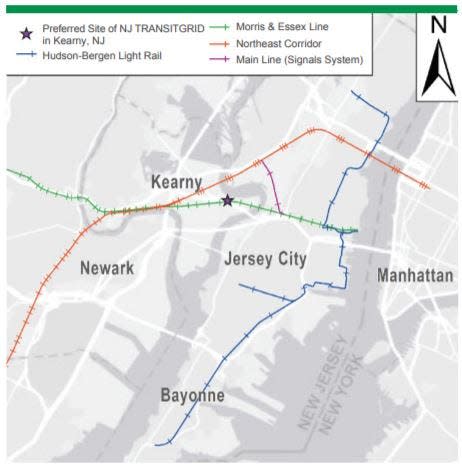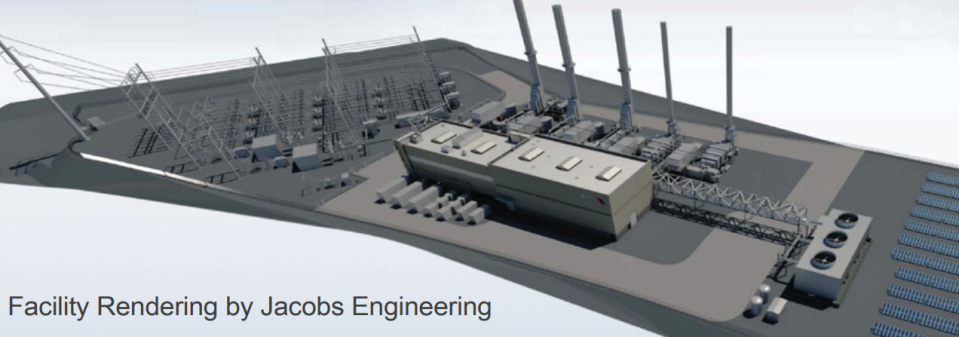Construction leaders attack feasibility of green NJ Transit power source
Construction industry leaders have attacked a recent study promoted by environmentalists that pushed a green energy alternative to NJ Transit's controversial plan to build a fossil fuel power plant for its train lines.
The study, released earlier this month, argued that a hybrid renewable energy microgrid is feasible to help power NJ Transit's power needs during an unexpected outage from a major storm or other disruption, as opposed to the fossil-fuel-burning power plant in Kearny that the agency is currently considering.
"Environmentalists lack the basic understanding of construction around these types of projects," argued Greg Lalevee, business manager for International Union of Operating Engineers Local 825, in a letter to NJ Transit President and CEO Kevin Corbett.

The Transitgrid project has become a flashpoint of controversy since the idea was born years ago. NJ Transit developed the idea as a way to increase resilience on its train lines after they were unable to operate for days due to Superstorm Sandy in 2012. The agency has received approval for a federal grant to cover the majority of project costs.
Pollution and greenhouse gases
But the proposal, called Transitgrid, involved a power plant reliant on gas, which environmentalists opposed because of the pollution and greenhouse gases it would emit, and they have spent years protesting at NJ Transit board meetings. Activists presented a study earlier this month that pitched a more environmentally friendly alternative using a combination of solar panels, electric battery storage and a backup turbine.

Lalevee cites several "flaws" with that study, noting that the report does not include the cost of additional transmission and distribution infrastructure to connect the solar panels to the rest of the grid, and that the renewables would not produce the megawatts required in the agency's bid request.
"The science of climate change, the conclusions in the study, and the growing number of public transit systems already implementing renewable energy systems to power trains across the world aren't opinions, they're facts," said Matt Smith, New Jersey director for Food and Water Watch. "In their study Strategen engineers accounted for transmission costs, utilized the energy requirements provided by NJ TRANSIT, and concluded that a clean energy solution is technically feasible, economically superior, and would promote the health of workers and residents alike."
Transition to hydrogen?
The study also cites concern about using a power plant in the near term and transitioning it later to a green alternative, like hydrogen, which has unknown potential costs. The authors wrote that their hybrid model should be considered by NJ Transit rather than "funding a new combined cycle gas plant that will have limited project life, produce harmful emissions, and will require major additional funding between 2030 and 2050."
Lalevee said ideas like transitioning to hydrogen shouldn't be discounted until those costs are known.
Good project with good goals
"We’re trying to build robust transit, get cars off the road, continue to move toward their goals, but it seems like they don’t want to make progress," Lalevee said. Transitgrid "is a very good project, to accomplish very good goals — goals that they are aligned with — but decided that it’s not the way they want to do it."
Before the bid process for the project began, NJ Transit decided to offer a $3 million stipend to incentivize firms to design a proposal that would rely on 100% renewables by 2050. Two finalists are expected to be chosen next month and an award announced next year.
"Consistent with Governor Murphy’s Energy Master Plan and Clean Energy Goals, NJ TRANSIT has re-imagined this project to promote maximized renewables and clean energy components to the greatest extent possible," said NJ Transit spokesman Jim Smith. "We remain wholly committed to ensuring we maximize clean energy in this project."
This article originally appeared on NorthJersey.com: Union group questions feasibility of green plan for NJ Transit plant

